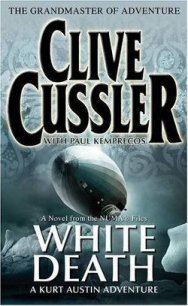The Whispering Land - Durrell Gerald (книги без регистрации бесплатно полностью TXT) 📗
Agoutis are, of course, rodents, members of that enormous and interesting family that includes creatures like the harvest mouse, which would hardly fill the bowl of a teaspoon, to capybaras* that are the size of a large dog and in between these two extremes a great variety of squirrels, dormice, rats, porcupines and other unlikely* beasts. Agoutis are not, let us admit at once, the most prepossessing of their family. To be perfectly frank, they look like a cross between one of the smaller forerunners of the horse, and a rather lugubrious rabbit. Their basic colouring is a rich, shining mahogany, fading to reddish-ginger on their rumps. Their legs are chocolate brown, very long and slender and racehorse-like, ending in a bunch of frail, artistic toes which give them the ancient-horse look.* Their hind legs are powerful in order to support a backside that is out of all proportion to the forequarters, so that the creature looks, if I might put it like this, as though it had a hump-behind.* The head is rabbit-like, but again slightly elongated so that there is still a faint suggestion of horse about it. They have large, fine eyes, neat rounded ears and a mass of black whiskers, which are in a constant state of agitation about everything. Combine all this with the beast's temperament, its constantly neurotic state, its wild leaps into the air at the slightest sound followed by a period of acute ague,* and you begin to wonder how the species survives at all. I should imagine that a jaguar would only have to growl once and every agouti within a hundred yards radius would die of heart-failure immediately. Musing on this I lowered the sacking over the front of my agouti's cage, and she immediately leapt once more into the air and came down shaking in every limb. However, within a few minutes she had recovered from this terrible experience sufficiently to make an attack on the apple I had left in the cage for her. Luna had now, by the application of song and wine, worked himself into a pleasant state where he sat at the table, humming softly like a drowsy bee. We had a final glass of wine as a nightcap,* and then, yawning prodigiously, stumbled off to bed.
I was awoken at what seemed to me to be a most uncivilized hour of the morning by a burst of song from Luna's bed, in the opposite corner of the room. Song and music ran through Luna's being as naturally as the blood flowed through his veins. When he was not talking he was singing or humming, and he is the only man I have ever met who can stay up until three in the morning and rise at five, bursting into song before he is even out of bed. But he sang so pleasantly and with such obvious pleasure that you forgave him, even at that hour of the morning, and, after knowing him some time, you took no more notice of it than you would have done of a dawn chorus of birds.
"The moon is like a little white drum in the sky," he sang from under a pile of bedclothes, "leading me to my love with the dark hair and the magic eyes, behind the mountains of Tucuman."
"If you sing to all your female acquaintances at this hour of the morning," I said drowsily, "I should think you lead a pretty lonely life in bed. These things get around, you know."
He chuckled and stretched luxuriously.
"Today is going to be a fine day, Gerry," he said. I wondered how he knew, for the shutters on the two windows were tightly closed. The night air, in which the Argentine will sit as late as he pleases without any harm to his being, becomes, as soon as he retires to bed, a deadly gas waiting to strangle him. So all shutters must be tightly closed to guard against such a dangerous experience. However, when we had dressed and gone out into the patio to breakfast, I found he was right, for it was flooded with sunshine.
We were finishing our last cup of coffee when our troupe of spies appeared to report. Apparently they had been out and about at the crack of dawn,* and they made their reports to Luna as he sat there, sipping his coffee, and occasionally giving a lordly nod. Then one of the younger of the spies was dispatched with money to purchase provisions for my specimens, and, on his return, the spies stood wide-eyed and watched me while I chopped up food and vegetables, filled bowls with milk or water, and generally ministered to my animals. When the last one had been fed, we filed out into the sunlit street and started once more on our search of the town. This time Luna used our retinue slightly differently. While we made our way to a house which he knew contained some wild pet, our young helpers fanned out* and explored every alley and street in the immediate vicinity, clapping their hands outside people's doors and, questioning complete strangers as to what pets they kept. Everyone was most good-humoured about this intrusion on their privacy and, even if they had no creatures themselves, would sometimes direct us to another house in which lurked some member of the local fauna. By this means, during the morning, we ran to earth three more pigmy rabbits, another parrot, two seriemas,* a strange, leggy type of bird, and two coatimundis,* the odd little raccoon-like* predator of South America. We took them back to Luna's house, caged them, ate a hearty lunch and then, exhilarated by our morning's success, set out to explore the outer limits of Oran, with the aid of an ancient car, let to us by one of Luna's friends.
Luna had learnt, by some M.I.5* methods of his own, that in one of the more far-flung portions of the town was a man who possessed a wild cat of some sort, but no one was quite sure who it was or the exact location of his house. Eventually, however, we narrowed our search down to one rambling street, and by the simple process of knocking or clapping outside every house we eventually found the man we were looking for. He was a large, dark, sweating and unclean-looking man of about forty, with an unhealthy paunch and beady black eyes that were alternately cringing or cunning. Yes, he admitted, he had got a wild cat, an ocelot;* and then, with all the fiery eloquence of a pre-election politician, he proceeded to tell us about the animal's beauty, grace, tameness, value, coloration, size, appetite, until I began to feel that he was trying to sell me an entire zoo instead of one animal. Breaking in on his asthmatic eulogy on the fine feline tribe in general and his specimen in particular, we asked to see it. He led us round into one of the filthiest backyards I had been in to date,* for in Oran and in Calilegua, however poor and tiny the house, the backyard was always neat and full of flowers. This looked like a council rubbish dump,* with old broken barrels, rusty tin cans, piles of old wire-netting, bicycle wheels and other flotsam and jetsam.* Our host lumbered over to a rough wooden cage in one corner which would have been small for the average rabbit. He opened the door, caught hold of a chain inside and hauled out on to the ground one of most pathetic sights I have seen. It was a half-grown ocelot, and how it managed to fit in such a small cage was a mystery. But it was its condition that was so appalling. Its coat was so matted with its own filth that you could only just discern the natural pattern of the skin. It had a large, running sore on one flank, and it was so thin that you could, under its matted coat, see its ribs and backbone clearly. Indeed, it was so weak that it wavered from side to side, like a drunk, when it was dropped on to the ground, and eventually gave up the attempt to stay upright, and sank dejectedly down on to its dirty belly.
"You see how tame it is?" inquired the man, giving us a display of tattered yellow teeth in an ingratiating grin. "She is very tame with everybody. Never has she been known to bite." He was patting the cat as he spoke, with one great sweaty palm. I could see that it was not tameness that stopped the animal from turning on him, but sheer inertia due to lack of food. She had almost reached the point of no return,* where she felt so weak that she just did not care.



